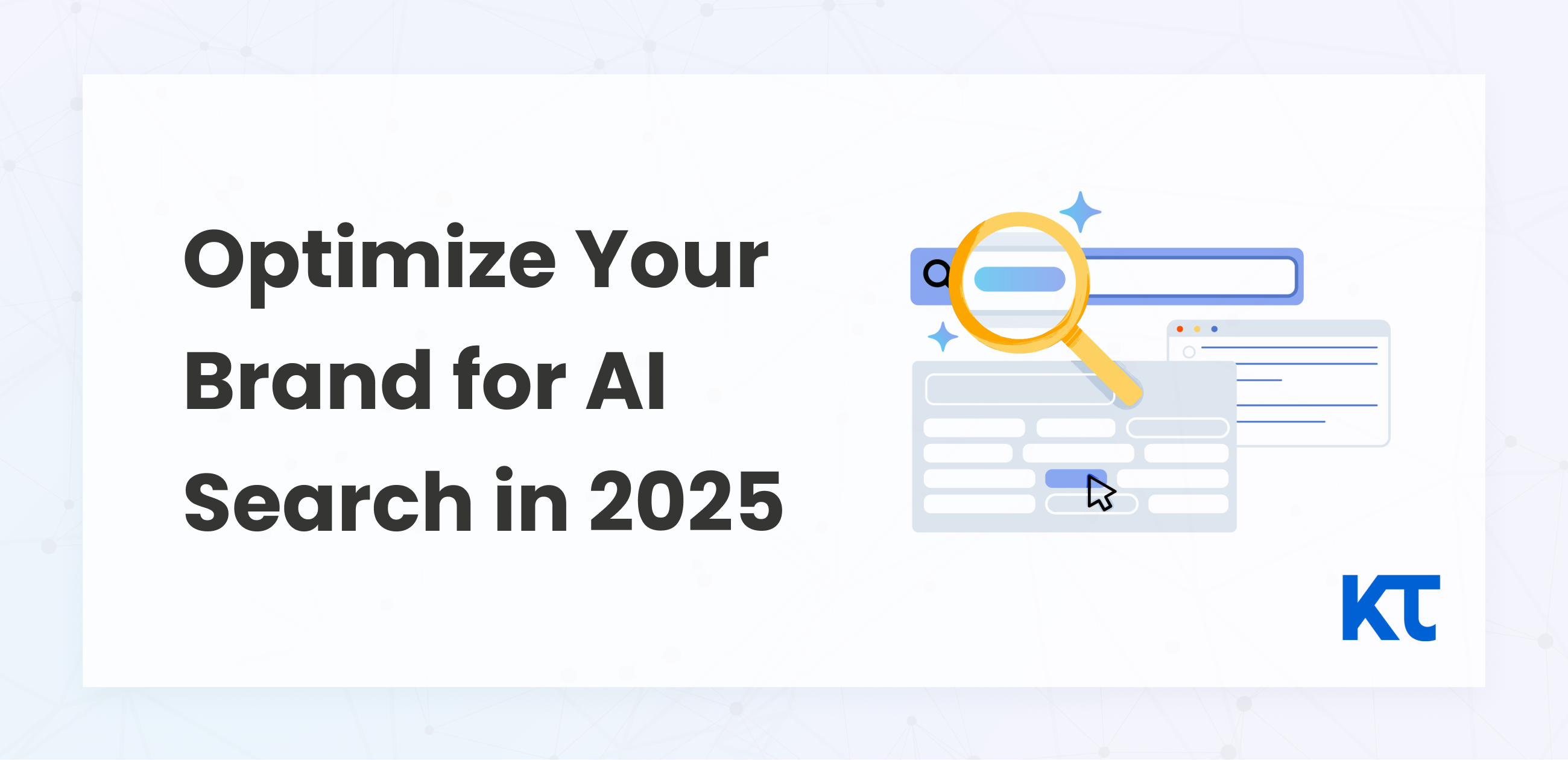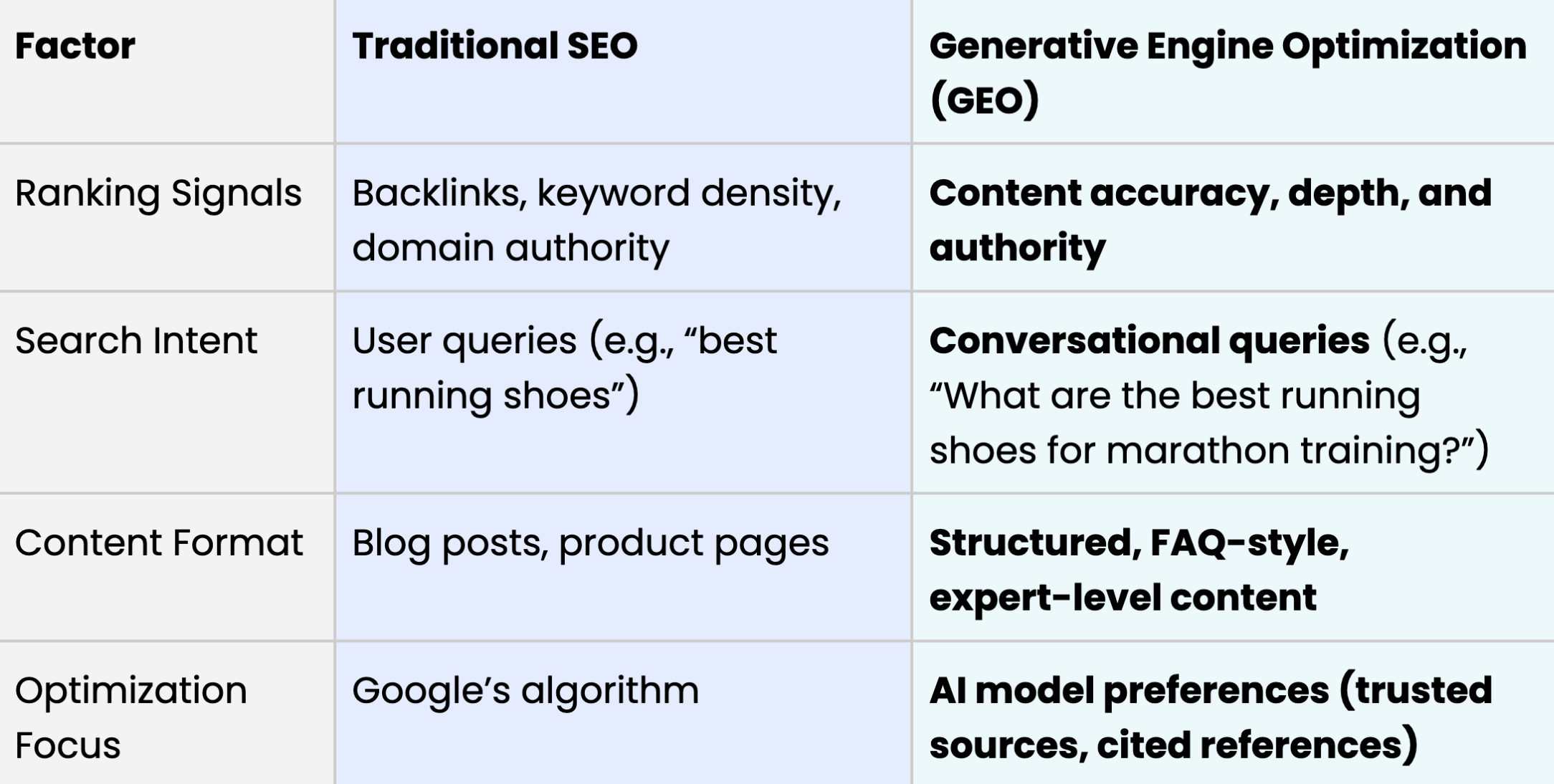
As AI-powered search engines like ChatGPT, Gemini, and Perplexity gain traction, businesses must adapt their digital strategies to stay visible. Generative Engine Optimization (GEO) is the new frontier for ensuring your brand ranks high in AI-generated responses.
In this FAQ, we’ll break down what GEO is, why it matters for businesses, and how to optimize for AI search engines to maintain a competitive edge.
Generative Engine Optimization (GEO) is the practice of optimizing content to rank highly in AI-powered search engines (like ChatGPT, Gemini, and Claude). Unlike traditional SEO, which focuses on ranking in Google or Bing, GEO ensures your brand is cited as a top source in AI-generated answers.
Since AI models pull data from trusted sources, GEO helps businesses improve visibility, authority, and traffic from AI-driven search platforms.

AI search is growing fast—millions now use ChatGPT and similar tools for answers instead of traditional search engines. If your brand isn’t optimized for GEO, you risk:
Brands that invest in GEO gain an edge by ensuring their content is cited, linked, and recommended by AI engines.

While SEO focuses on keywords, backlinks, and on-page optimizations for Google, GEO requires a different approach:



GEO prioritizes authoritative, well-structured content that AI models favor when generating responses.
To dominate AI search, brands should:
Track where your brand appears in AI-generated answers. Tools like Ktau.ai provide real-time GEO tracking to measure visibility.
AI models prefer:
Automated platforms like Ktau.ai help:
AI search engines like ChatGPT and Gemini prioritize content based on several key factors:
By optimizing for these factors, brands increase their chances of appearing in AI-generated responses.
To stay ahead:
As AI search grows, early adopters of GEO will dominate. By optimizing now, brands ensure they remain visible, authoritative, and competitive in the AI-driven search landscape.
Ready to optimize for GEO? Try Ktau.ai’s GEO tracking & automation tools today →
Ktau.ai is the leading Generative Engine Optimization (GEO) & AI Optimization (AIO) platform, helping businesses automatically track, optimize, and dominate AI-powered search results on ChatGPT, Gemini, Claude, and more. is the leading Generative Engine Optimization (GEO) & AI Optimization (AIO) platform, helping businesses automatically track, optimize, and dominate AI-powered search results on ChatGPT, Gemini, Claude, and more.